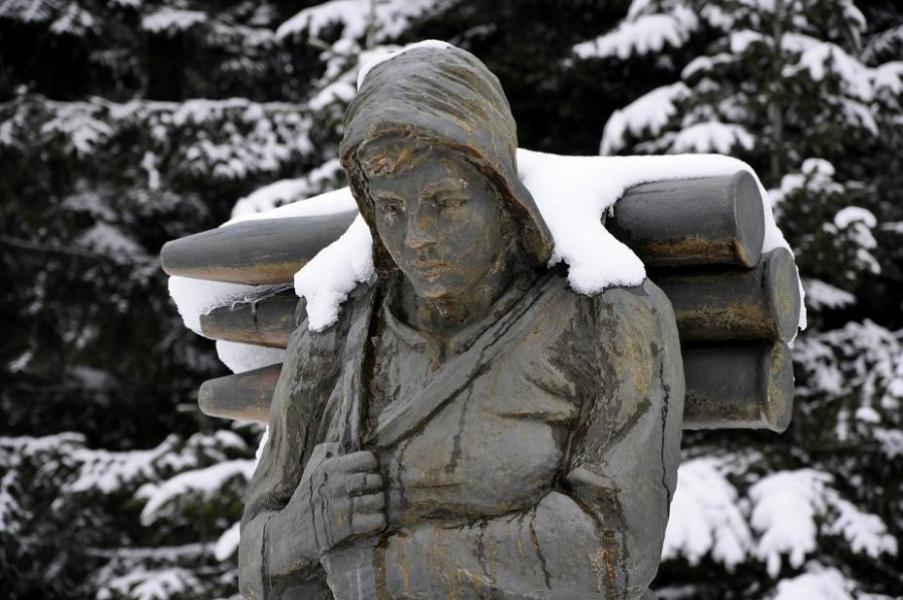ceylannur
Yeni Üyemiz
İngilizce Hayvan Tanıtımı penguen

The African Penguin, Spheniscus demersus, is also called the Blackfoot penguin. This penguin is found off the coast of southern Africa. Penguins are birds that cannot fly, but penguins swim very well and spend most of their lives in the sea. African penguins can swim at a speed of about 4.3 to 15 miles per hour (7-24 kph). This penguin makes a sound like a donkey.
Anatomy: African Penguins are about 2 feet (60 cm) tall; they weigh from 6.8 to 8 pounds (3.1-3.6 kg). The male is larger and has a longer bill than the female. There is a black stripe on the chest. Like all penguins, African Penguins have a big head, a short, thick neck, a streamlined shape, a short, wedge-shaped tail, and small, flipper-like wings. They have webbed feet which they use for swimming. Penguins are countershaded; they have a lighter color on the belly and a darker color on their back; this coloration helps camouflage them when they are in the water, hiding them from predators.
Feathers: Penguins have shiny, waterproof feathers that help keep their skin dry. They have more feathers than most other birds – about 70 feathers per square inch. Once a year, penguins molt, losing their old feathers and growing new ones. While molting (which takes about 3 weeks), they cannot swim and do not eat.
***t: African Penguins are carnivores (meat-eaters) who hunt in the sea. They eat fish (including sardines, sancord, and anchovies) and squid.
Reproduction: African penguins nest by burrowing into guano (bird droppings) and sand. Females lay two eggs. The incubation period is from 38 to 42 days. Both parents guard the nest and feed the hatchlings regurgitated food. These penguins reach maturity at 3 to 4 years of age.
Populations: African penguin populations are declining rapidly due to many factors, including: reduction of their food supply (by overfishing), pollution (from oil tankers), egg harvesting by people, disease, and guano (bird droppings) removal from their nesting grounds for use as a fertilizer.
Habitat: The African Penguin lives in colonies on 24 islands between Namibia and Port Elizabeth (Africa). New colonies have been established on

The African Penguin, Spheniscus demersus, is also called the Blackfoot penguin. This penguin is found off the coast of southern Africa. Penguins are birds that cannot fly, but penguins swim very well and spend most of their lives in the sea. African penguins can swim at a speed of about 4.3 to 15 miles per hour (7-24 kph). This penguin makes a sound like a donkey.
Anatomy: African Penguins are about 2 feet (60 cm) tall; they weigh from 6.8 to 8 pounds (3.1-3.6 kg). The male is larger and has a longer bill than the female. There is a black stripe on the chest. Like all penguins, African Penguins have a big head, a short, thick neck, a streamlined shape, a short, wedge-shaped tail, and small, flipper-like wings. They have webbed feet which they use for swimming. Penguins are countershaded; they have a lighter color on the belly and a darker color on their back; this coloration helps camouflage them when they are in the water, hiding them from predators.
Feathers: Penguins have shiny, waterproof feathers that help keep their skin dry. They have more feathers than most other birds – about 70 feathers per square inch. Once a year, penguins molt, losing their old feathers and growing new ones. While molting (which takes about 3 weeks), they cannot swim and do not eat.
***t: African Penguins are carnivores (meat-eaters) who hunt in the sea. They eat fish (including sardines, sancord, and anchovies) and squid.
Reproduction: African penguins nest by burrowing into guano (bird droppings) and sand. Females lay two eggs. The incubation period is from 38 to 42 days. Both parents guard the nest and feed the hatchlings regurgitated food. These penguins reach maturity at 3 to 4 years of age.
Populations: African penguin populations are declining rapidly due to many factors, including: reduction of their food supply (by overfishing), pollution (from oil tankers), egg harvesting by people, disease, and guano (bird droppings) removal from their nesting grounds for use as a fertilizer.
Habitat: The African Penguin lives in colonies on 24 islands between Namibia and Port Elizabeth (Africa). New colonies have been established on




